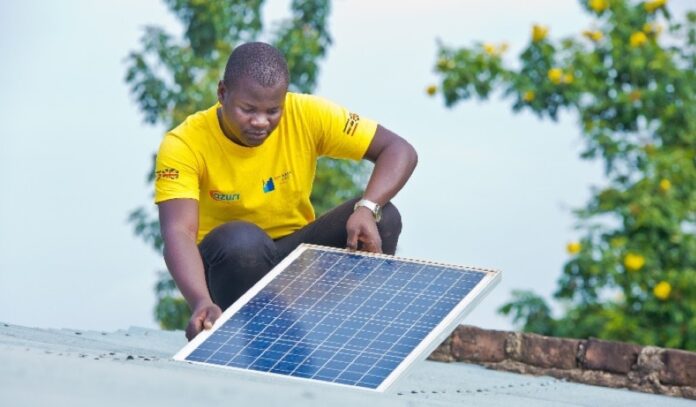A recent study by Bekele, et al., (2024) titled “The dynamic linkage between renewable energy consumption and environmental sustainability in Sub-Saharan African countries: Heterogeneous macro-panel data analysis” published in Cogent Economics & Finance, examines that the average renewable energy consumption rate was 67.32% of the total final energy consumption, significantly higher than the global average, indicating strong reliance on renewable sources.
“
Increased renewable energy consumption significantly enhances environmental sustainability in Sub-Saharan Africa, supporting sustainable development and climate change mitigation.
– Bekele, et al., 2024
The article delves into the complex and evolving relationship between renewable energy consumption and environmental sustainability in Sub-Saharan African countries. Environmental sustainability is a fundamental component of sustainable development. It encompasses the ability to maintain ecological processes, biodiversity, and productivity over time. Energy consumption plays a pivotal role in this, as the sources and methods of energy production and usage directly impact the environment. In Sub-Saharan Africa, where economic development is closely linked with energy use, understanding this relationship is crucial for sustainable growth. The study focuses on the integration of renewable energy sources and their contribution to environmental sustainability across 30 Sub-Saharan African countries over a period spanning from 2000 to 2020. Renewable energy sources such as solar, wind, hydro, and biomass are becoming increasingly vital in the region’s energy mix. The research aims to evaluate how the adoption and consumption of these renewable energy sources influence overall environmental sustainability. The empirical analysis conducted in the study reveals a positive and significant long-term relationship between renewable energy consumption and environmental sustainability. This finding suggests that increased use of renewable energy sources is associated with better environmental outcomes. The data indicates that countries that have invested more in renewable energy infrastructure and have higher consumption rates of renewable energy tend to exhibit improved sustainability metrics.
How the Study was Conducted
The authors utilize panel data from 2000 to 2020 across 30 Sub-Saharan African countries to investigate the relationship between renewable energy consumption and environmental sustainability. The authors employ the Augmented Mean Group (AMG) Model for empirical estimation, addressing challenges related to cross-sectional dependence, heterogeneity, and serial correlation. The authors also incorporate the Granger non-causality test in panel data models to determine the direction of causality between variables and controls for the effects of key variables such as economic growth, population growth, institutional quality, and policy dummy factors.
What the Authors Found
The authors found that the average renewable energy consumption rate was 67.32% of the total final energy consumption, significantly higher than the global average, indicating strong reliance on renewable sources. The study also posits a positive and statistically significant long-term relationship between renewable energy consumption and environmental sustainability, suggesting that higher renewable energy use leads to better environmental outcomes. In addition, the authors found an increase in greenhouse gas emissions following the Millennium Development Goals (MDG) period, emphasizing the need for more effective environmental policies and interventions in the post-MDG era. Finally, the study found bidirectional causality between renewable energy consumption and environmental sustainability, meaning that not only does renewable energy use enhance sustainability, but improved sustainability also promotes further renewable energy adoption. This underscores the importance of policies that support environmental investments and renewable energy incentives for sustainable development.
Why is this Important
Sustainable Development: Environmental sustainability is a crucial aspect of sustainable development. By understanding the relationship between renewable energy consumption and sustainability, policymakers can make informed decisions to promote long-term well-being.
Policy Implications: The positive link between renewable energy use and environmental sustainability suggests that policies supporting renewable energy adoption can contribute to achieving sustainable development goals. For instance, subsidies, tax incentives, and investment in clean energy infrastructure can play a vital role.
Climate Change Mitigation: As the world faces climate change challenges, transitioning to renewable energy sources becomes imperative. This study reinforces the importance of renewable energy as a tool for mitigating greenhouse gas emissions and combating climate change.
Regional Context: Focusing on Sub-Saharan African countries, the research sheds light on the specific context of energy consumption and sustainability in this region. It highlights opportunities for targeted interventions and collaborations.
What the Authors Recommend
- The authors recommend implementing policies that actively promote renewable energy adoption. These policies could include subsidies, tax incentives, and investment in clean energy infrastructure. By creating a favorable environment for renewable energy projects, countries can accelerate their transition toward sustainable energy sources.
- To enhance renewable energy uptake, the study suggests focusing on capacity building and technology transfer. This involves training local professionals, sharing best practices, and facilitating the transfer of renewable energy technologies. Collaboration with international partners can play a crucial role in this process.
- Policymakers should adopt integrated approaches that consider both energy and environmental aspects. For instance, combining renewable energy projects with reforestation efforts or sustainable land use practices can yield synergistic benefits. Holistic planning ensures a balanced approach to development.
- Regular monitoring and evaluation of renewable energy projects are essential. By assessing their impact on environmental sustainability, policymakers can make informed adjustments and optimize resource allocation. Transparency and accountability are key in this regard.
- Engaging local communities is vital. The study recommends involving communities in decision-making processes related to renewable energy projects. Community buy-in, awareness, and participation contribute to successful implementation and long-term sustainability.
In conclusion, the study by Bekele et al. highlights the critical role of renewable energy in fostering environmental sustainability in Sub-Saharan Africa. With a significant reliance on renewable sources, the region showcases the potential for sustainable development through clean energy adoption. The positive relationship between renewable energy consumption and environmental sustainability underscores the need for policies that support renewable energy infrastructure, capacity building, and technology transfer. As Sub-Saharan Africa continues to develop, prioritizing renewable energy can lead to better environmental outcomes, mitigate climate change, and ensure long-term ecological balance. Engaging local communities and integrating energy policies with environmental strategies will be key to achieving these goals and promoting sustainable growth across the region.
















 The African Research (AR) Index is a comprehensive scholarly directory and database focused explicitly on journal publishers that publish and disseminate African research.
The African Research (AR) Index is a comprehensive scholarly directory and database focused explicitly on journal publishers that publish and disseminate African research.

